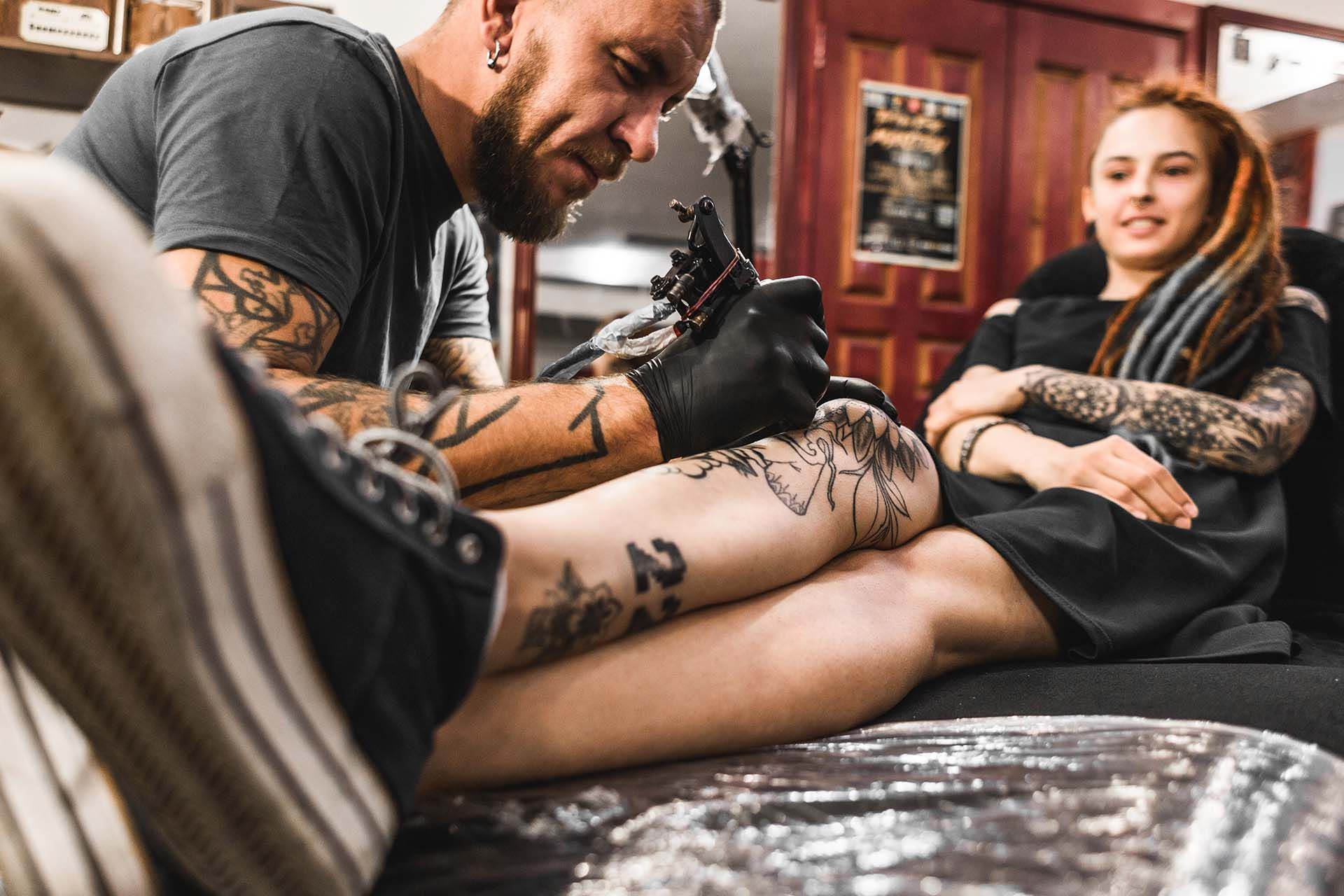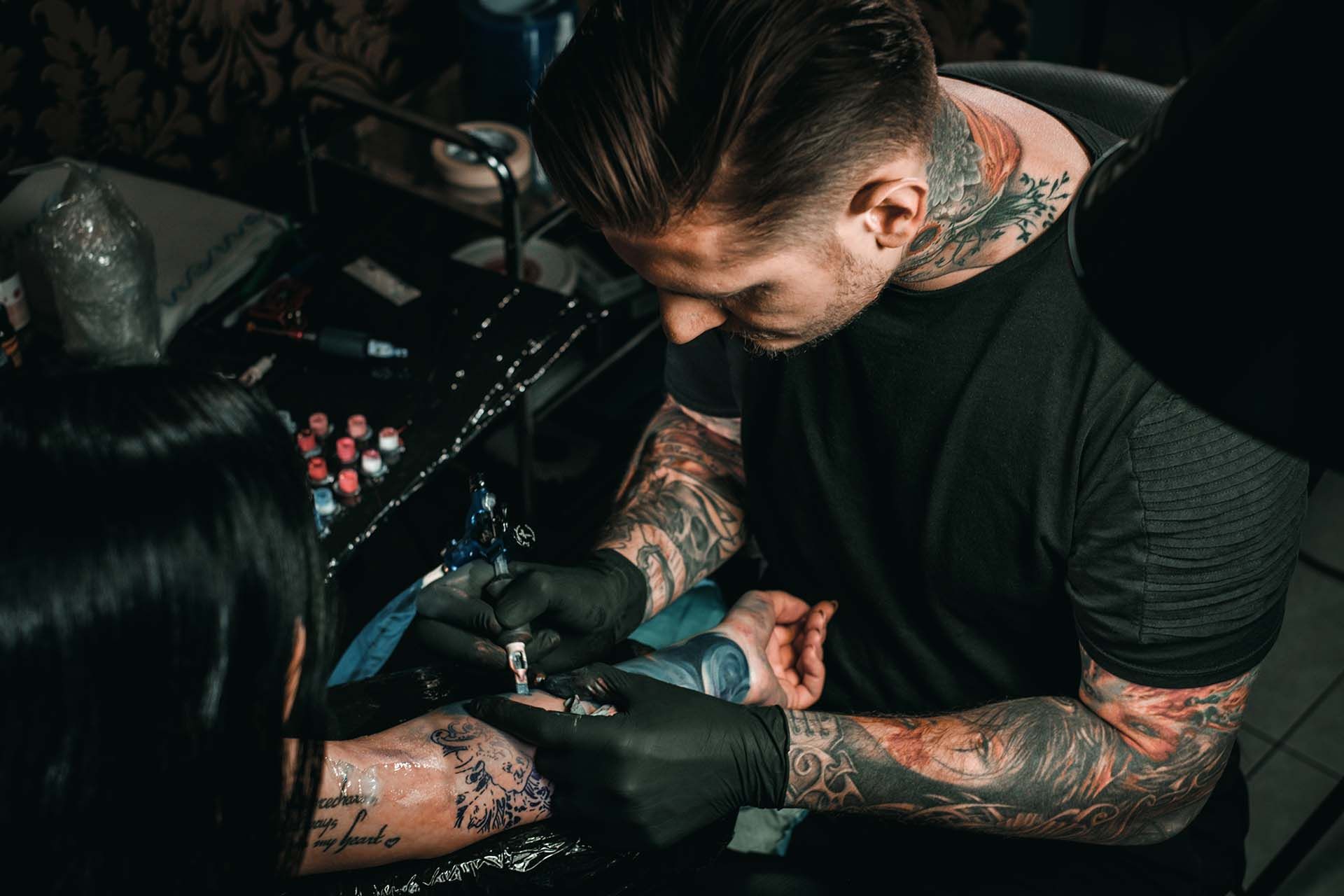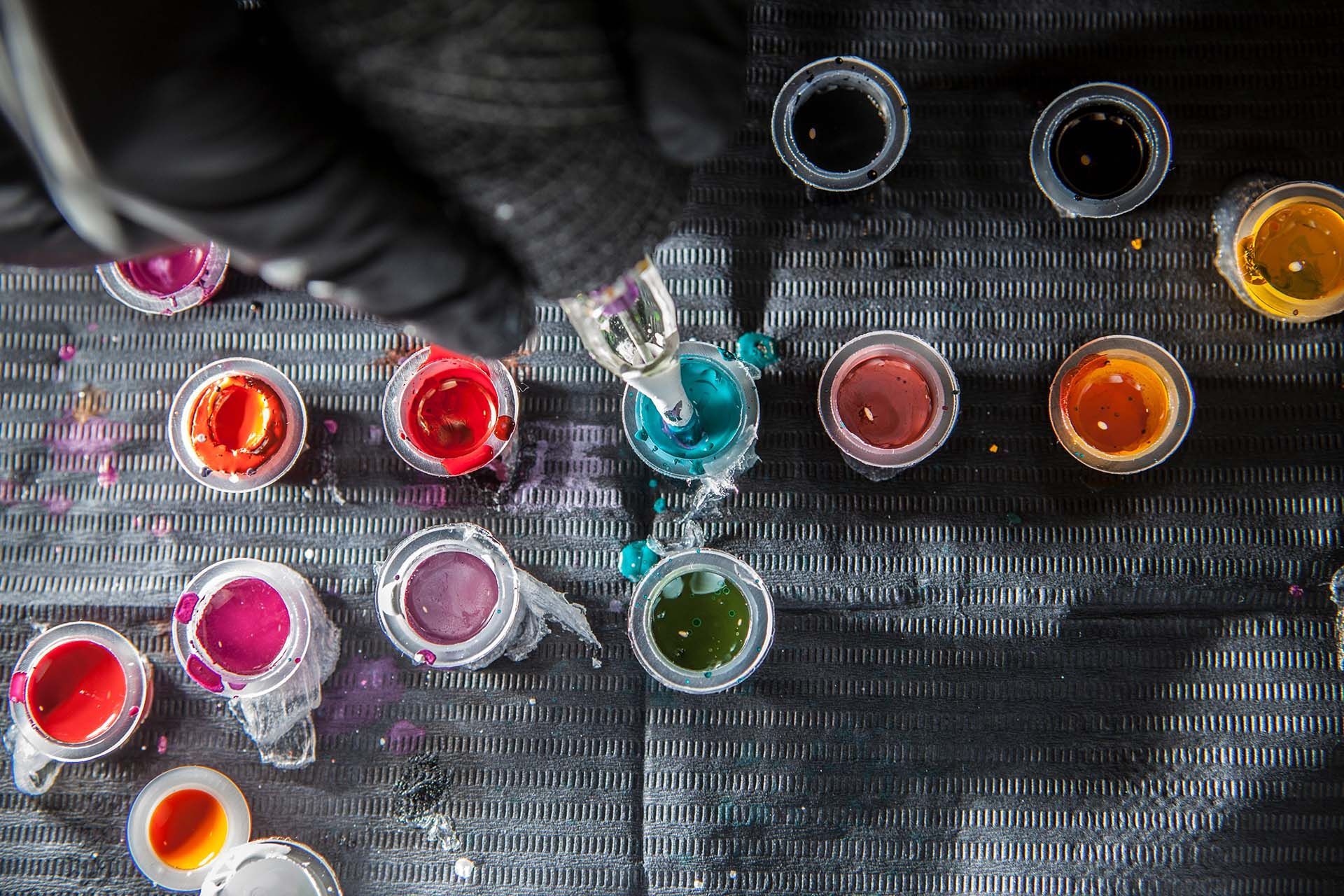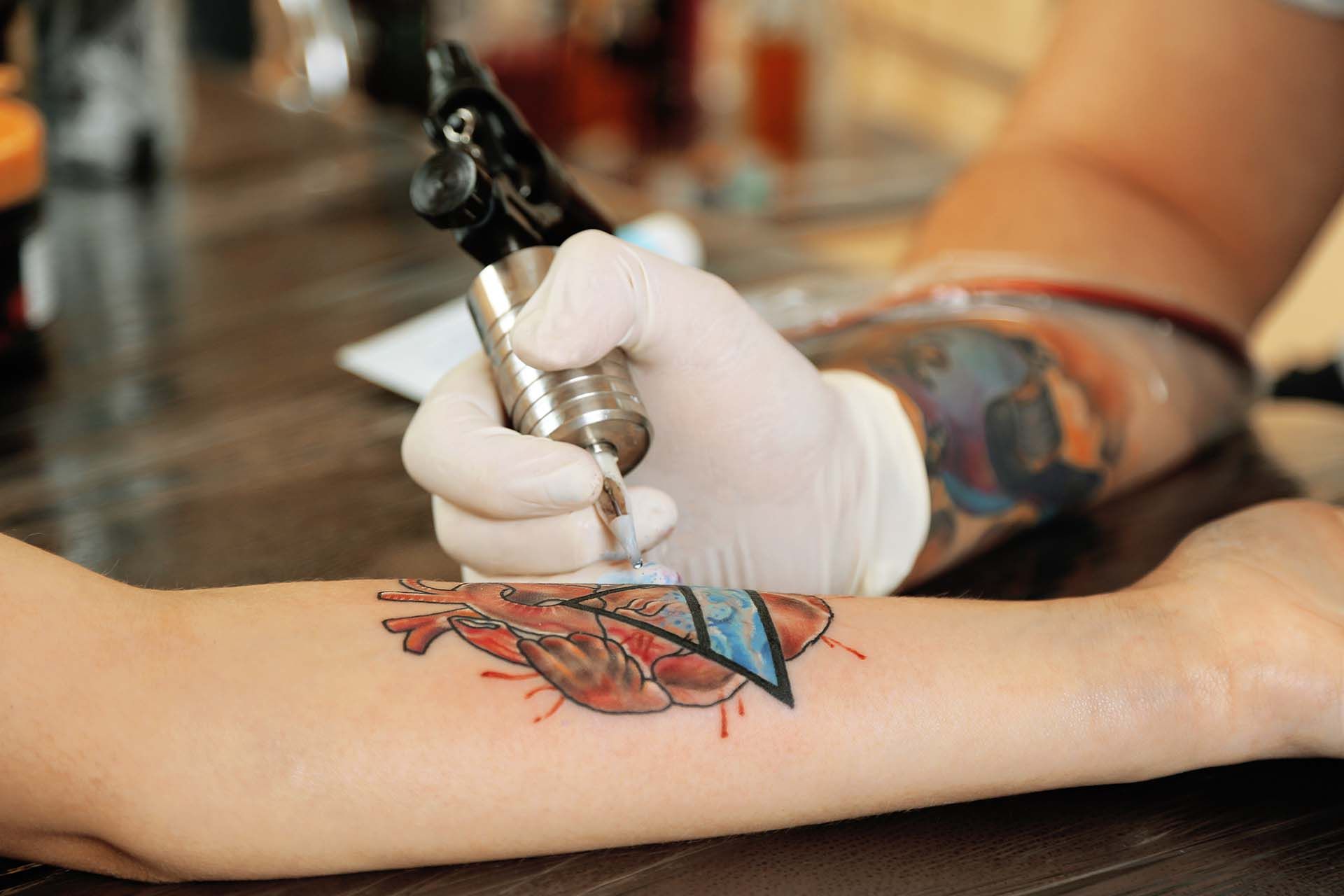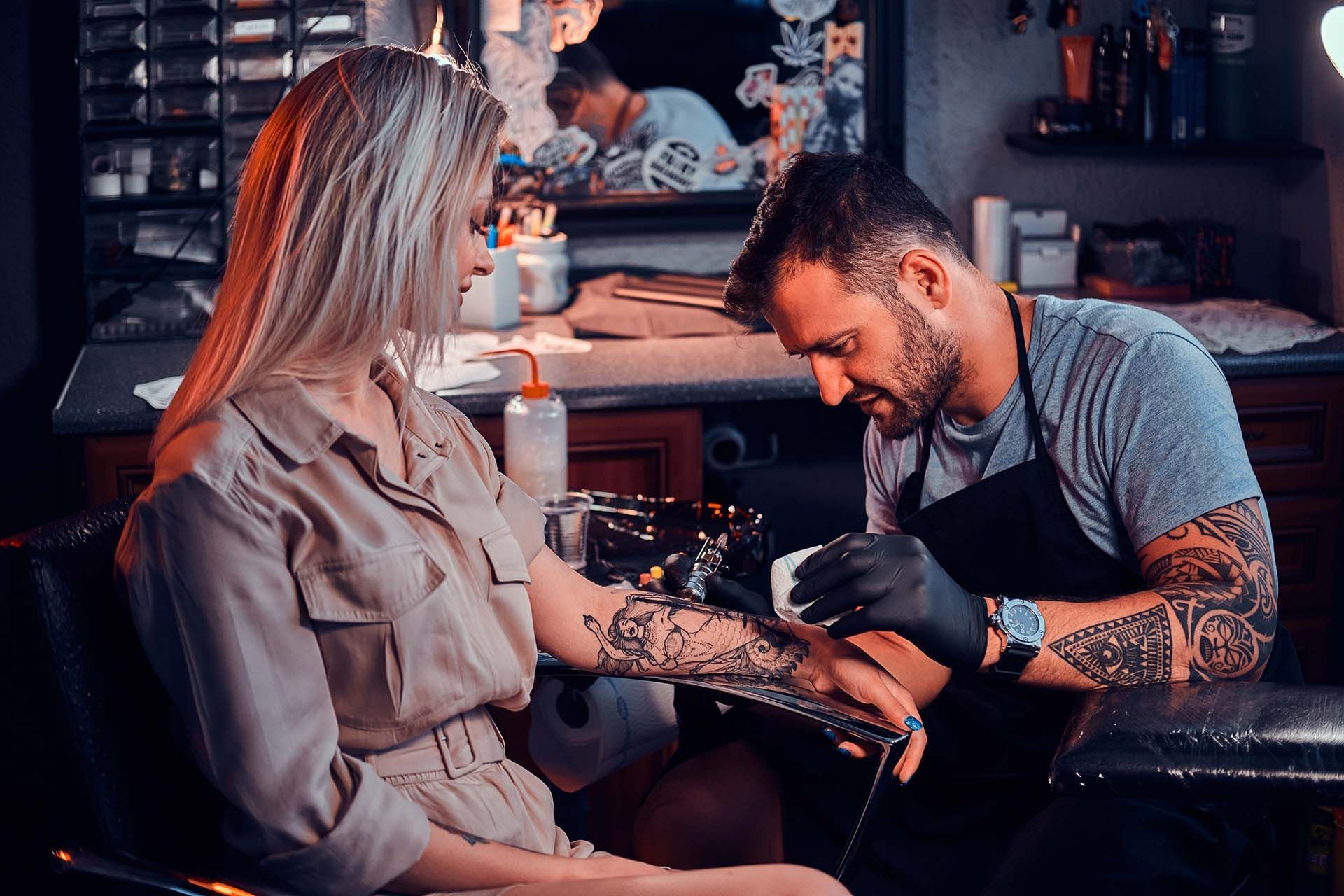How to Start a Tattoo Studio For Experienced Artists
Your step-by-step guide for starting a tattoo shop
There comes a moment in every tattoo artist's journey when they feel that itch, that nudge to move beyond just creating masterpieces for others and into the realm of owning a studio. If you're an artist like me who has spent years perfecting their craft, you might be pondering the same. So, how do you start a tattoo studio as an experienced artist? That's exactly what I'm going to help you figure out today! Let's get right into it.
Why Open Your Own Tattoo Shop?
Having tattooed for years, the prospect of opening your own shop can be both exciting and intimidating. But why take the leap?
- Independence & Creative Control: Owning your studio gives you the independence to run things your way. No longer bound by someone else's rules, you decide the aesthetics, the operational hours, and even the kind of music that plays in the background. Your studio, your rules.
- Financial Freedom: Let's face it. Owning your own business, if run successfully, can be more profitable than working under someone. You set the prices, decide the overheads, and ultimately, keep the lion's share.
- Legacy & Brand Building: As artists, we leave a lifelong mark on our clients' skin. But with your own studio, you have the chance to leave an even bigger mark on the tattooing world. Your shop can become synonymous with a particular style, quality, or ethos you believe in. It's your chance to build a brand, a legacy.
- Growth Opportunities: With your own shop, you're not just an artist but an entrepreneur. This journey will push you to learn, adapt, and grow in ways you might not have imagined. From managing a team to handling finances, the spectrum of skills you'll acquire is vast.
Master Your Art & The Tattoo Industry
Before diving into the deep end of studio ownership, it's essential to be confident in two areas: your artistry and your understanding of the industry.
- Continuous Learning: Even though you're experienced, the learning never stops, as new techniques, styles, and tools emerge. Dedicate time to refine your skills, attend workshops, and stay updated. Remember, a great artist attracts clients, and this is even more crucial for a studio owner.
- Understand the Business Side: Tattooing isn't just about the art; it's a business. Get acquainted with the basics of running a business, such as licensing, rent, utilities, and insurance. Knowing the tattoo industry's ins and outs ensures you're not blindsided by unforeseen challenges.
- Grow Your Network: Your connections within the tattoo community will be invaluable. They can offer insights, advice, and even referrals. Attend tattoo conventions, engage in tattoo forums online, and nurture relationships with suppliers and other artists.
- Know Your Niche: The world of tattooing is diverse. From traditional and geometric to watercolor and tribal, what's your specialty? Having a clear understanding of your niche will not only guide your marketing efforts but will also help in setting up your studio to cater specifically to your audience.
How to Start a Tattoo Studio for Experienced Artists
As seasoned artists, many of us are no strangers to the nuances of tattooing. But opening a studio brings its own set of challenges, even for the most well-versed. So, let's dive into the nitty-gritty of beginning this exciting chapter.
Study the Market & Consumers
- Identify Your Audience: Understand who your potential clients are. Are they young professionals looking for minimalistic designs, or are they aficionados seeking large, intricate pieces? Recognizing your target demographic will guide many of your decisions down the road.
- Scope Out the Competition: Check out other studios in your desired area. What are their strengths and weaknesses? Are there any prevalent gaps in the market you can fill?
- Stay Updated with Trends: Tattoo trends evolve. While classic designs remain evergreen, it's beneficial to stay updated with what's popular to meet varying client demands.
Create a Comprehensive Business Plan
- Financial Forecasting: Chart out your expected expenses - rent, utilities, equipment, salaries, and other overheads. Then, compare these against your projected income to ensure profitability. This will also help in seeking any financial backing, should you need it.
- Marketing & Branding Strategy: How will you attract clients to your new studio? Will you rely on social media, local advertising, or word of mouth? Having a clear strategy will ensure consistent business.
- Operational Details: Outline day-to-day operations. This includes staff roles, studio hours, booking procedures, and more. A well-structured plan keeps things running smoothly.
Choose Your Studio's Location
- Visibility & Accessibility: Your studio should be easily noticeable and accessible to potential clients. Hence, locations near busy streets, shopping areas, or popular hangout spots can be beneficial.
- Budget Constraints: While it's essential to find a prime spot, it's equally important to ensure the rent or purchase price doesn't strain your finances.
- Check Zoning Laws: Before finalizing any location, ensure that the area is zoned for tattoo parlors. Some places might have restrictions, so it's crucial to do your homework.
- Think of Ambiance: Your studio isn't just a place of business; it's where art comes to life. Consider locations that allow you to create an inviting, artistic atmosphere, both inside and out.
Name Your Studio
- Reflect Your Brand: Your studio's name should mirror the essence of your brand and the type of tattoos you specialize in. Whether you lean more towards traditional art or avant-garde styles, ensure the name gives a hint of your work.
- Originality: Do a quick search to make sure the name isn't already in use, especially in your locality. An original name not only avoids potential legal issues but also ensures you stand out in the crowd.
- Memorable & Catchy: Your studio's name should roll off the tongue easily and be memorable. The quicker people recall it, the more likely they are to recommend it.
Make it Legal
- Licensing & Certification: Depending on your location, you may need specific licenses to operate a tattoo studio. Often, both the artist and the establishment need separate licenses.
- Health Regulations: Tattoo parlors fall under strict health regulations to prevent infections and ensure client safety. Familiarize yourself with these rules and consistently uphold them.
- Business Structure: Decide on a business structure, such as sole proprietorship, LLC, or corporation. Each has its own tax and liability implications, so it might be beneficial to consult with a legal expert or business advisor.
Obtain Supplies
- Quality is Key: Invest in high-quality inks, needles, machines, and sterilization equipment. This ensures not only the best results for your clients but also their safety.
- Maintain Relationships with Suppliers: Having a good rapport with your suppliers can lead to discounts, timely deliveries, and first-hand information on the latest equipment and materials in the market.
- Stock Up: While it's essential not to overstock, ensure you have enough supplies on hand to cater to clients without any interruptions.
Get Your Name Out There
- Leverage Social Media: Platforms like Instagram and Pinterest are visual-centric and ideal for tattoo artists. Regularly share posts of your work, engage with followers, and don’t forget to use relevant hashtags to increase visibility.
- Local Advertising: Consider advertisements in local newspapers, radio stations, or even collaborating with neighboring businesses for mutual promotions.
- Word of Mouth: Offer promotions or discounts to clients who refer others. Satisfied customers can be your biggest promoters.
- Participate in Conventions: Tattoo conventions are a great way to showcase your talent, network with fellow artists, and attract potential clients.
Ink Your Dream Into Reality
Every piece of art starts with a vision, a single line. Similarly, your dream studio begins with that first bold move. Having been in your shoes, I can genuinely say I've felt the same anticipation. And I promise you, the journey is truly worth the leap. So, why hesitate? Trust in your skills, embrace the adventure and gradually turn your dream into reality. After all, your canvas is ready and waiting. It's time to dive in.
Frequently Asked Questions:
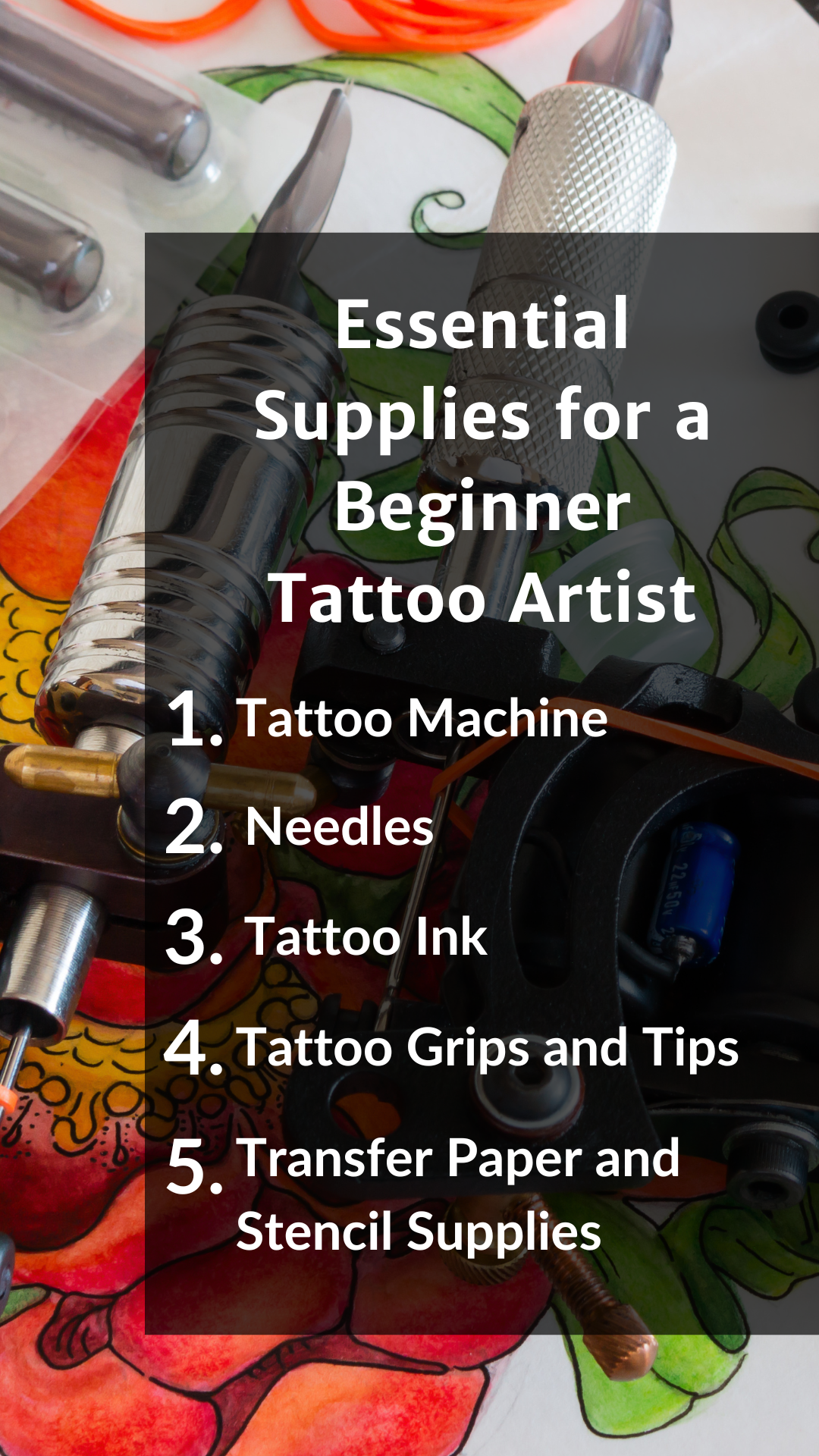
Disclaimer: This publication and the information included in it are not intended to serve as a substitute for consultation with business consultants and professionals. Specific business, financial, legal issues, concerns and conditions always require the advice of appropriate professionals. Any opinions expressed are solely those of the participant and do not represent the views or opinions of this company.

